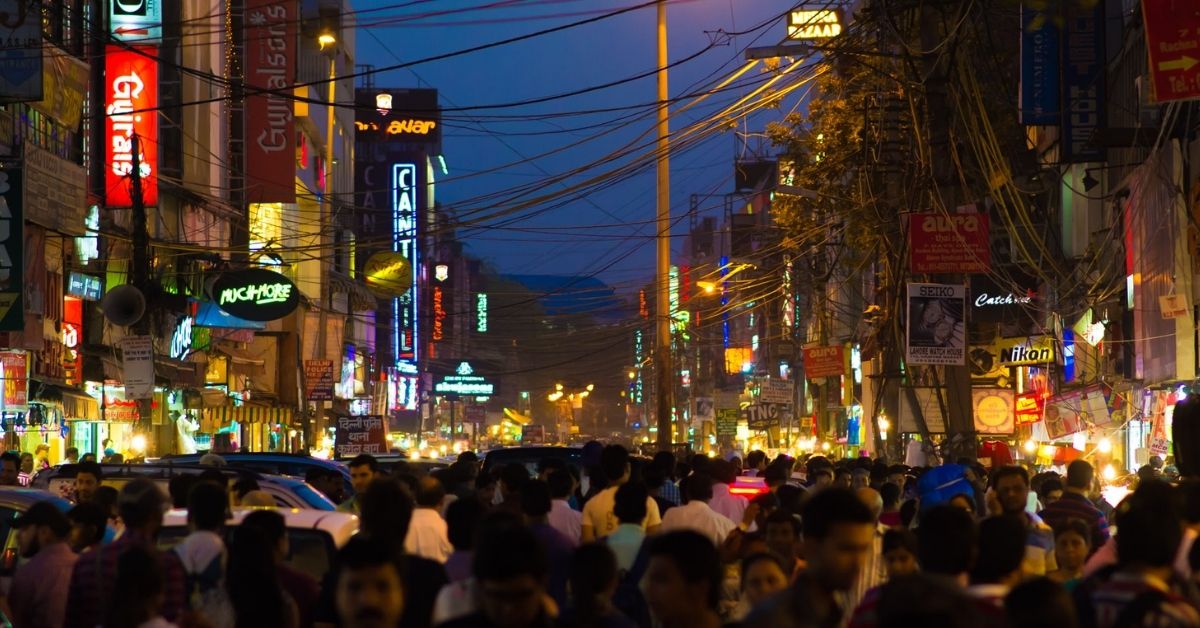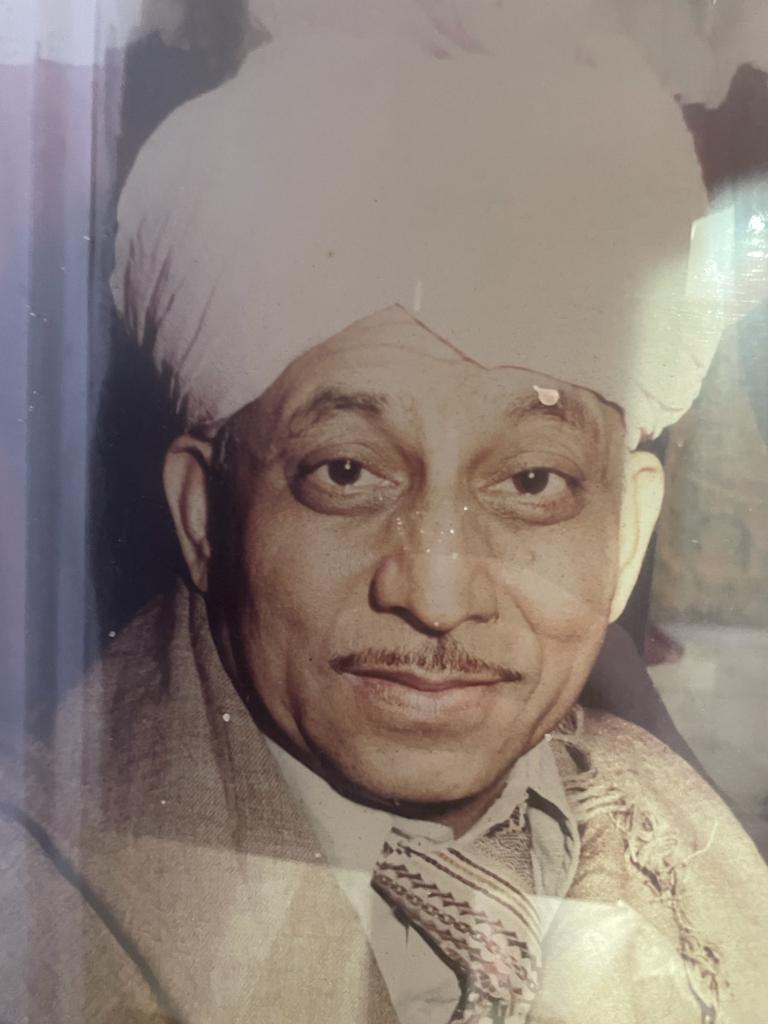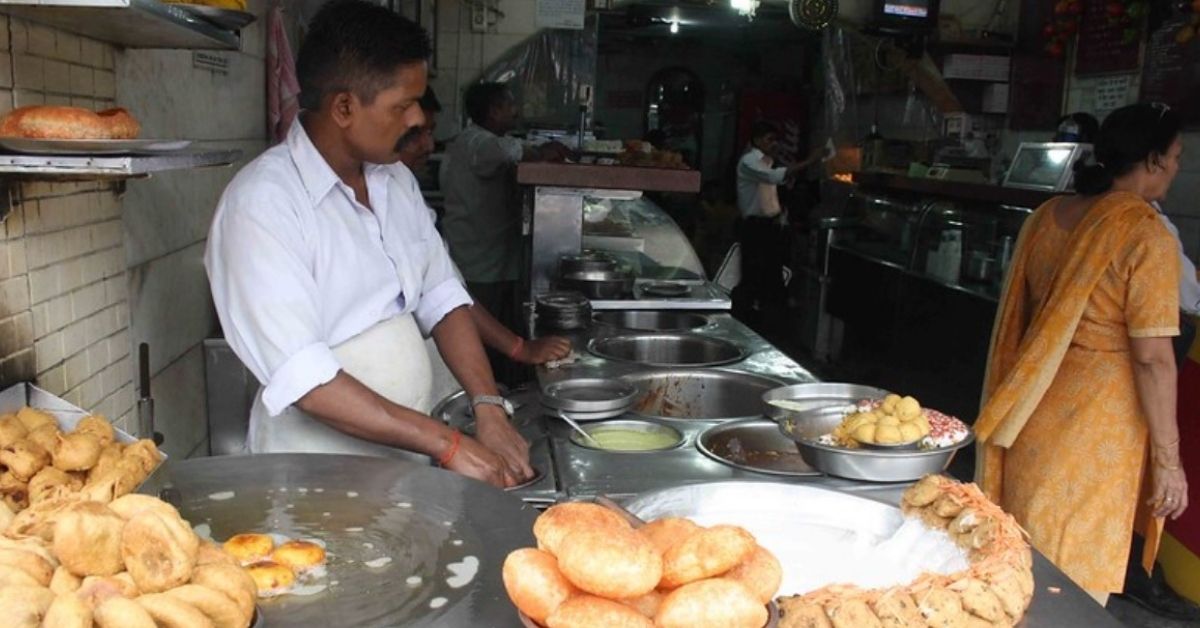Before the pandemic, at any time on any given day you would find lakhs of Delhiites on the streets of Karol Bagh, one of the city’s oldest and most popular destinations. Thousands of street vendors set up shop amid the tiny gullies, selling a variety of clothes, jewellery, shoes, electronics, and any item you might be looking for. You’d also find an array of food stalls that boast a variety of dishes and cuisine — chow mein, momos, chaat, sweets, chole bhature, kulfi — you name it.
Over the years, Old Delhi has come to be home to a variety of old eateries. One of these is the beloved Roshan Di Kulfi, over seven decades old, nestled among the bustling streets of the marketplace and thronged by a sea of hungry visitors looking to satisfy their sweet cravings.

A safe haven after the Partition
The story of this eatery dates back to 1947, right after the Partition of India, when then 19-year-old Roshan Lal Soni migrated from Lahore to Delhi. Born and brought up in Himachal Pradesh, he had moved to the former as a teenager in search of a livelihood. After the Partition forced millions out of their homes, Roshan found himself unwittingly being part of the sea of refugees that left their old lives behind.
In order to earn a livelihood, young Roshan began selling dry fruits in neighbourhoods in Connaught Place, where he would walk from door to door to sell his products. He later moved to Karol Bagh, and inspired by the scorching Delhi heat, decided to venture into selling kulfis.
“At the time, a new market of refugees had emerged in the area,” Roshan’s 33-year-old grandson Ishan Soni, who currently helms the business, tells The Better India. “My grandfather put up a street stall here. Today, we have a multi-storey and multi-cuisine store, in the exact same area where he had first set up his tiny stall as a street hawker.”
Kulfis, the delicious and desi answer to ice creams, are made by slowly thickening and evaporating milk, which is then sweetened with sugar. After this, additional ingredients such as chopped nuts and saffron are added, and the dish is frozen in moulds. A favourite addition to kulfis is falooda, made from vermicelli noodles and added condiments such as rose syrup.
When Roshan first began selling kulfis, he would walk four kilometres, from Shakti Nagar to Karol Bagh, carrying giant tins of milk on his shoulder to begin selling for the day. “Transportation was not easily available at the time, so he’d have to walk everywhere. Even work opportunities were lacking at the time, and finding jobs was not as easy,” Ishan says. “Of course, there were no digital platforms at the time. Most of the store’s popularity spread through word of mouth.”

Roshan’s legacy was taken forward by his sons, Joginder Kumar Soni (Ishan’s father), Pradish Kumar Soni, and late Ashok Kumar Soni. Ishan notes that over the years, the family has tried their best to stabilise business, but have faced their fair share of challenges along the way. “One challenge was us maintaining the quality with which our grandfather began. Meeting profits, procuring quality raw ingredients, and moderating flavours according to diversifying tastes were some others. Our priority has always been to ensure that the quality of our kulfi never changes,” Ishan says.
Customers return with a smile
Roshan started by selling the kesar pista falooda kulfi, which Ishan notes is their most popular dish to this date. Today, their portfolio has diversified to include delectable Indian sweets, snacks and thalis. The family also runs a catering and food supply business. Other than their most famous variety, their kulfies include the mango falooda kulfi (which Ishan says is a hit during the summer months), sugar-free falooda kulfi, pan falooda kulfi and the chocolate oreo kulfi. Snacks include chole bhature, chole puri, paneer pakora, aloo tikki, samosas, chaat, pav bhaji and kachori.
They also sell tandoori items like paneer tikkas, mushroom tikkas, soya chaaps and rolls, as well as south Indian snacks such as dosas, idlis, sambar and uttapams. The items are priced anywhere between Rs 125 and Rs 200, making this a place where people from all walks of life come to unwind and enjoy mouthwatering food.

Ishan recalls his grandfather was both strict about his routine, as well as fun-loving — a unique combination that lent to the thriving of Roshan Di Kulfi. “He was hard working, and put all his efforts into the business, which is what we try to carry forward even today.”
When I ask Ishan how many customers he thinks would have thronged to their beloved eatery before the pandemic, he laughs saying, “Our elders say that we shouldn’t delve too much into these things, and continue our business with an honest and dedicated mind.” It seems fair, given that it could be hard to keep a track of the hundreds of customers who have come to love Roshan Di Kulfi so much that visiting it became a regular affair.
Speaking about how coronavirus changed the picture, Ishan says, “After the first lockdown, when we reopened our store, we faced a lack of both labour as well as customers. Those days were hard. We were just beginning to come back on track before this second lockdown was announced. Our store is located right in the middle of the main market, and is not surrounded by many residential areas, so deliveries are also low. Food delivery services have not been reliable either. Moreover, we’re also scared of the new strain of COVID-19, so we’ve locked up shop to keep safe for now.”
In 1997, Roshan Di Kulfi found itself as the epicenter of one of the two bomb blasts that shook Karol Bagh right before Diwali. The blast, which took place in the customer seating area, took the life of one woman, while injuring several others.
Ishan recalls, “Our store was severely damaged. My father spent the next several months staying back at the restaurant till late at night, returning early morning the next day, to ensure that the renovation work was completed as quickly as possible. However, our doors were open to customers the very next day.” Business was in no way affected, as people readily returned to their safe haven, refusing to give up despite the horrifying incident that had taken place.
Over the years, the store has come to be loved by stalwarts such as Kapil Dev and Atal Bihari Vajpayi. “It feels wonderful to hear the praises of the legacy our grandfather has created,” Ishan says. “Whoever comes here returns with a smile on their face, and that keeps us going.”
Edited by Yoshita Rao
No comments:
Post a Comment